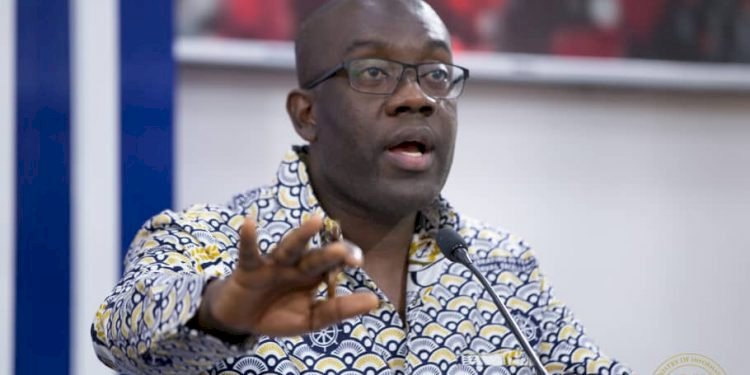Parliament To Pass Appropriation Bill By March 30 - Kojo Oppong

Parliament is expected to pass the Appropriation Bill by March 30, following the approval of the 2021 Budget Statement and also the Economic Policy, the Minister for Information, Kojo Oppong Nkrumah has said. The Appropriation Bill, when passed, will give authorization for the expenditure of government funds. Parliament
will from this week begin to consider the budget or the estimates of the Ministries, Departments and Agencies on an individual basis, and our expectation is that, by the 30th of March, Parliament should receive and pass the Appropriation Bill which is what will give the Ministry responsible for Finance the mandate to spend
from 1st April 2021, Mr. Nkrumah said during a press conference on Sunday, March 21, 2021. The Minister called on the Members of Parliament to support the measures outlined in the budget. The Parliament has already approved the 2021 budget. After a secret vote on Friday, March 19, 2021, 137 MPs were in favour of
approving the budget as against 134 MPs voting against the budget. There were concerns about the price of fuel, among others, after the proposed 5.7 percent increment in prices of petrol and diesel as part of new levies. The increment will be as a result of the new 10 pesewa Sanitation and Pollution Levy as well as
a 20 pesewa levy to cater for charges on the country’s excess power capacity. There was also a one 1 percent COVID-19 levy which will be a one percentage point increase on both the existing VAT Flat Rate Scheme (VFRS) and National Health Insurance Levy (NHIL). The Finance Minister-nominee, Ken Ofori Atta, said these taxes would be necessary for funding the coronavirus
vaccine rollout as well has health infrastructure. The Fitch Ratings in its assessment also said the slow pace of the consolidation path outlined by budget statement and by accompanying medium-term fiscal framework leaves Ghana exposed to a heavy debt-service burden and risks of fiscal slippage. The government, on the other hand, has also described the taxes as necessary. Expenditure also saw an increase of GHS11.8 billion translating into a deficit increase of GHS25.3.







